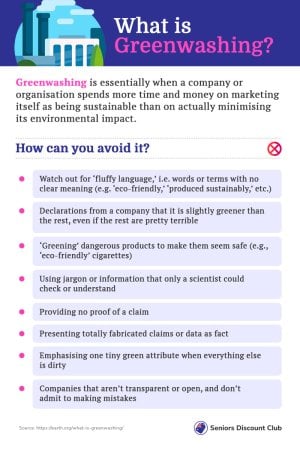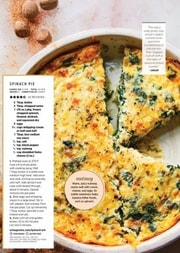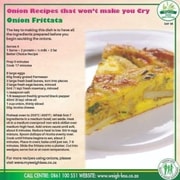The truth behind 'Ocean Plastic': Are brands really saving our seas?
- Replies 2
As seasoned shoppers, we've seen our fair share of false advertising and products that fail to deliver on their promises. But lately, something has caught our attention - the surge in brands claiming to be champions in the fight against plastic pollution to save our oceans.
But can we really trust these claims, or are we being duped? In our quest for eco-friendly products, we must be vigilant and dig deeper into the truth behind the labels.
Take, for example, Glad's recycled bin liners. They proudly boast of being made from '50% Ocean Plastic', but upon closer examination, we discovered that they are actually only made from '50% Ocean Bound Plastic'.
To understand the difference, we had to read the fine print on the back of the product. There, we learned that 'Ocean Plastic' and 'Ocean Bound Plastic' may not have actually come from the ocean at all.
In reality, the materials used for these bin liners could have been sourced from as far as 50km away from the sea, and collected from developing countries with inadequate waste management systems in place.
This kind of 'misleading' information is a growing concern, and according to experts, it's not something we can afford to ignore as eco-conscious consumers.
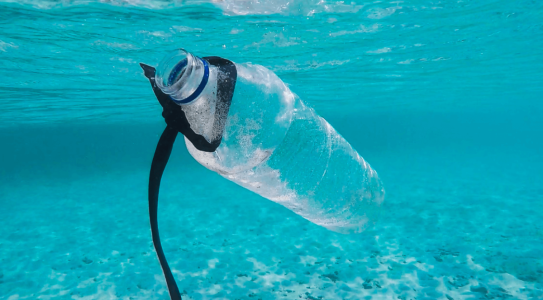
Heidi Tait, the founder of the Tangaroa Blue Foundation, is on a mission to prevent, remove, and track marine debris in Australia. But she's raised a red flag on a concerning issue - consumers being duped by confusing labels and inaccurate information.
'We are importing that waste as a feedstock to be manufactured into (new) products, and then we are claiming that somehow we've cleaned up the ocean, and it's going to have a benefit to our marine environment and to our wildlife,' she said, highlighting the misleading nature of such claims.
Tait further argues that the growing number of products claiming to be made from ocean plastic or ocean-bound plastic is misleading. These companies import waste from distant locations overseas and use it as raw material, claiming to benefit the marine environment and wildlife.
But the truth might be far from what they propose.
It's worth noting that Glad does not explicitly claim to be cleaning up the ocean. Instead, their messaging centres around recycling ocean-bound plastic to prevent it from entering the ocean, with the goal of reducing pollution and protecting marine life.
In response to the concerns raised, The Clorox Company, the parent company of Glad, has stated their commitment to offering consumers bag products that minimise their environmental impact.
They emphasise adherence to laws and industry codes of practice when it comes to packaging and marketing their products, ensuring that their claims are accurate.
However, Ms Tait believes that the language used in these ocean plastic products could lead consumers to misunderstand what they are actually buying.
The company that Glad partners with for its recycled bags, Oceanworks, describes itself as a 'powerful responsible plastic sourcing engine that brings traceability and digitisation to the recycled plastic trade'.
Oceanworks provides the recycled plastic feedstock used in Glad's linings, saying that it comes from locations with inefficient waste management systems because ocean plastic is hard to collect at scale and difficult to use in manufacturing.
'To solve ocean plastic pollution, as a problem, you need to get the plastic out of the ocean that's already in there. But you absolutely also have to stop new plastic from going in,' said Oceanworks Co-founder and CEO Vanessa Coleman.
She also acknowledges the transparency issues in the growing sector and emphasises the need for brands to be clear in their marketing efforts.
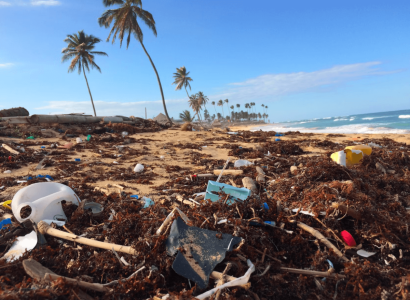
Ms Tait, along with the Tangaroa Blue Foundation and lawyers from the Environmental Defenders Office, believes that it's crucial for Australia to establish government-approved definitions for ocean and ocean-bound plastic.
This would enable consumers to clearly understand the environmental impact of the products they are purchasing.
While the government inquiry deliberates on this issue, the Australian Competition and Consumer Commission (ACCC) has been urged to scrutinise products already in the market. The ACCC, currently in the midst of a crackdown on greenwashing across the board, has issued a warning to all brands to be cautious.
A spokesperson stated, 'Businesses should take care when making claims about using 'ocean plastic' or 'ocean-bound plastic' in their products. As there is no standard definition for these terms, this may leave consumers with a false impression.'
The ACCC further mentioned that they would be releasing revised guidance for businesses in the coming months to ensure that environmental claims are accurate and meaningful to consumers.

So, as we navigate the world of eco-friendly products and strive to make responsible choices, it's essential to dig beyond the surface and critically evaluate the claims made by brands. Are they following through in their efforts to combat plastic pollution in our oceans, or are we being misled by clever marketing tactics?
Members, what do you think about the use of terms like 'ocean plastic' or 'ocean-bound plastic' on product labels? Should there be standardised definitions and regulatory oversight to ensure transparency and integrity in environmental claims? Share your thoughts and opinions in the comments!
But can we really trust these claims, or are we being duped? In our quest for eco-friendly products, we must be vigilant and dig deeper into the truth behind the labels.
Take, for example, Glad's recycled bin liners. They proudly boast of being made from '50% Ocean Plastic', but upon closer examination, we discovered that they are actually only made from '50% Ocean Bound Plastic'.
To understand the difference, we had to read the fine print on the back of the product. There, we learned that 'Ocean Plastic' and 'Ocean Bound Plastic' may not have actually come from the ocean at all.
In reality, the materials used for these bin liners could have been sourced from as far as 50km away from the sea, and collected from developing countries with inadequate waste management systems in place.
This kind of 'misleading' information is a growing concern, and according to experts, it's not something we can afford to ignore as eco-conscious consumers.

More brands in Australia are marketing their products as made from ocean plastic or ocean-bound plastic. Credit: Unsplash/Brian Yurasits.
Heidi Tait, the founder of the Tangaroa Blue Foundation, is on a mission to prevent, remove, and track marine debris in Australia. But she's raised a red flag on a concerning issue - consumers being duped by confusing labels and inaccurate information.
'We are importing that waste as a feedstock to be manufactured into (new) products, and then we are claiming that somehow we've cleaned up the ocean, and it's going to have a benefit to our marine environment and to our wildlife,' she said, highlighting the misleading nature of such claims.
Tait further argues that the growing number of products claiming to be made from ocean plastic or ocean-bound plastic is misleading. These companies import waste from distant locations overseas and use it as raw material, claiming to benefit the marine environment and wildlife.
But the truth might be far from what they propose.
It's worth noting that Glad does not explicitly claim to be cleaning up the ocean. Instead, their messaging centres around recycling ocean-bound plastic to prevent it from entering the ocean, with the goal of reducing pollution and protecting marine life.
In response to the concerns raised, The Clorox Company, the parent company of Glad, has stated their commitment to offering consumers bag products that minimise their environmental impact.
They emphasise adherence to laws and industry codes of practice when it comes to packaging and marketing their products, ensuring that their claims are accurate.
However, Ms Tait believes that the language used in these ocean plastic products could lead consumers to misunderstand what they are actually buying.
The company that Glad partners with for its recycled bags, Oceanworks, describes itself as a 'powerful responsible plastic sourcing engine that brings traceability and digitisation to the recycled plastic trade'.
Oceanworks provides the recycled plastic feedstock used in Glad's linings, saying that it comes from locations with inefficient waste management systems because ocean plastic is hard to collect at scale and difficult to use in manufacturing.
'To solve ocean plastic pollution, as a problem, you need to get the plastic out of the ocean that's already in there. But you absolutely also have to stop new plastic from going in,' said Oceanworks Co-founder and CEO Vanessa Coleman.
She also acknowledges the transparency issues in the growing sector and emphasises the need for brands to be clear in their marketing efforts.

Some product labels state they are made from '50% Ocean Bound Plastic', but the fine print explains the plastic may never have been in the ocean and could be from up to 50 km away from the shoreline. Credit: Unsplash/Dustan Woodhouse.
Ms Tait, along with the Tangaroa Blue Foundation and lawyers from the Environmental Defenders Office, believes that it's crucial for Australia to establish government-approved definitions for ocean and ocean-bound plastic.
This would enable consumers to clearly understand the environmental impact of the products they are purchasing.
While the government inquiry deliberates on this issue, the Australian Competition and Consumer Commission (ACCC) has been urged to scrutinise products already in the market. The ACCC, currently in the midst of a crackdown on greenwashing across the board, has issued a warning to all brands to be cautious.
A spokesperson stated, 'Businesses should take care when making claims about using 'ocean plastic' or 'ocean-bound plastic' in their products. As there is no standard definition for these terms, this may leave consumers with a false impression.'
The ACCC further mentioned that they would be releasing revised guidance for businesses in the coming months to ensure that environmental claims are accurate and meaningful to consumers.
Key Takeaways
- There is a growing concern about misleading claims by brands regarding their use of ocean plastic or ocean-bound plastic in their products.
- Heidi Tait, the founder of the Tangaroa Blue Foundation in Australia, along with lawyers from the Environmental Defenders Office are calling for government-approved definitions to ensure accurate labelling and prevent greenwashing.
- The Australian Competition and Consumer Commission (ACCC) responded with a warning to brands to be cautious with their environmental claims, as there are currently no standard definitions for ocean plastic or ocean-bound plastic.
- They will be releasing revised guidance for businesses in the coming months to ensure integrity and clarity in such claims.
So, as we navigate the world of eco-friendly products and strive to make responsible choices, it's essential to dig beyond the surface and critically evaluate the claims made by brands. Are they following through in their efforts to combat plastic pollution in our oceans, or are we being misled by clever marketing tactics?
Members, what do you think about the use of terms like 'ocean plastic' or 'ocean-bound plastic' on product labels? Should there be standardised definitions and regulatory oversight to ensure transparency and integrity in environmental claims? Share your thoughts and opinions in the comments!

